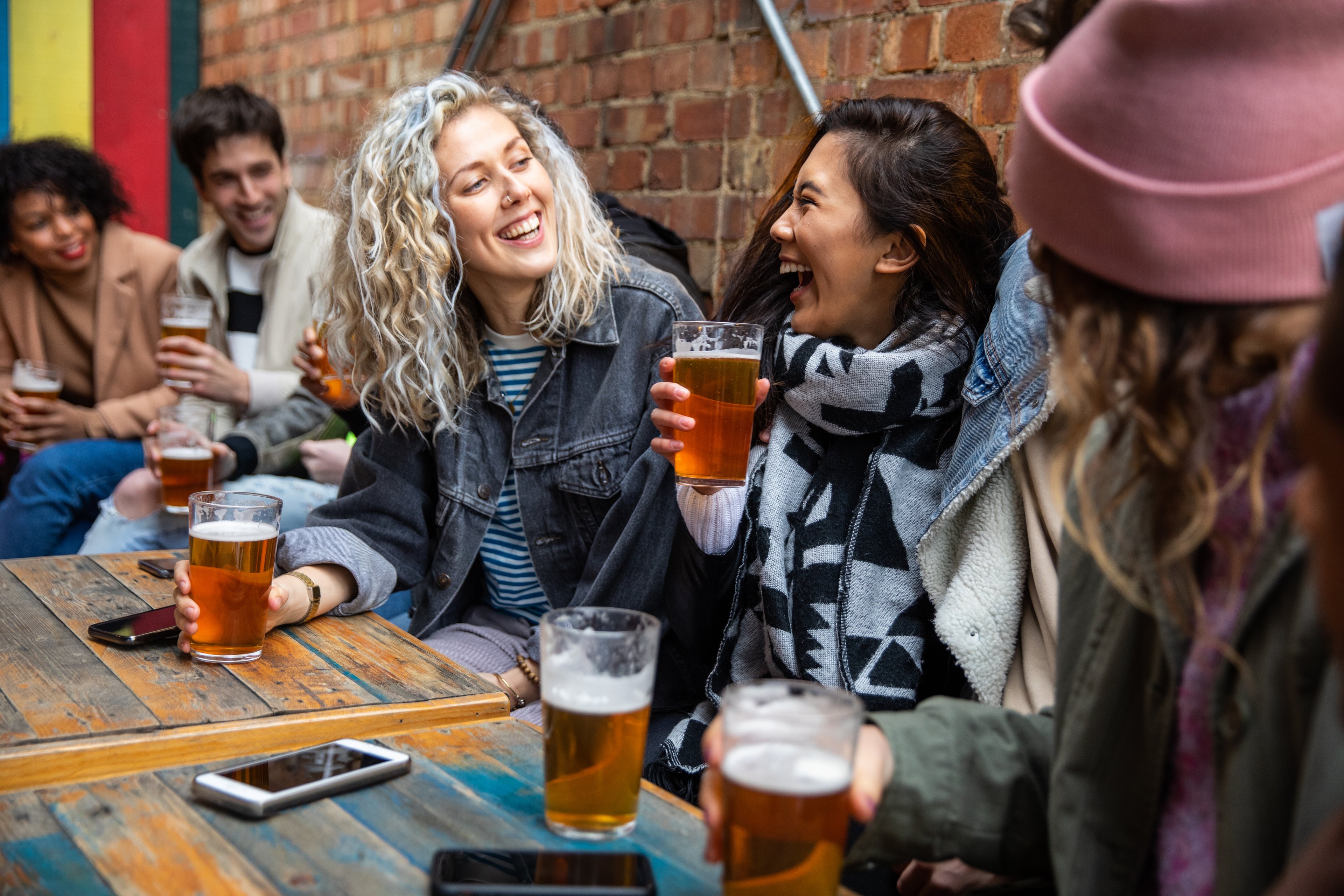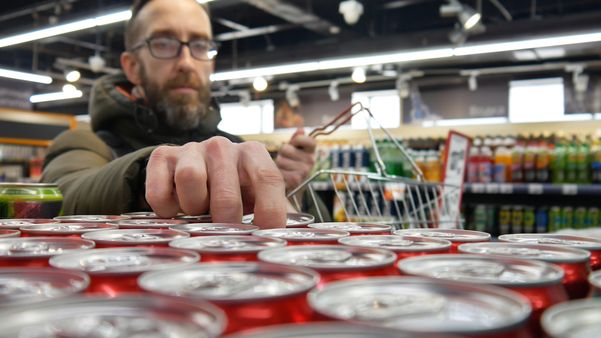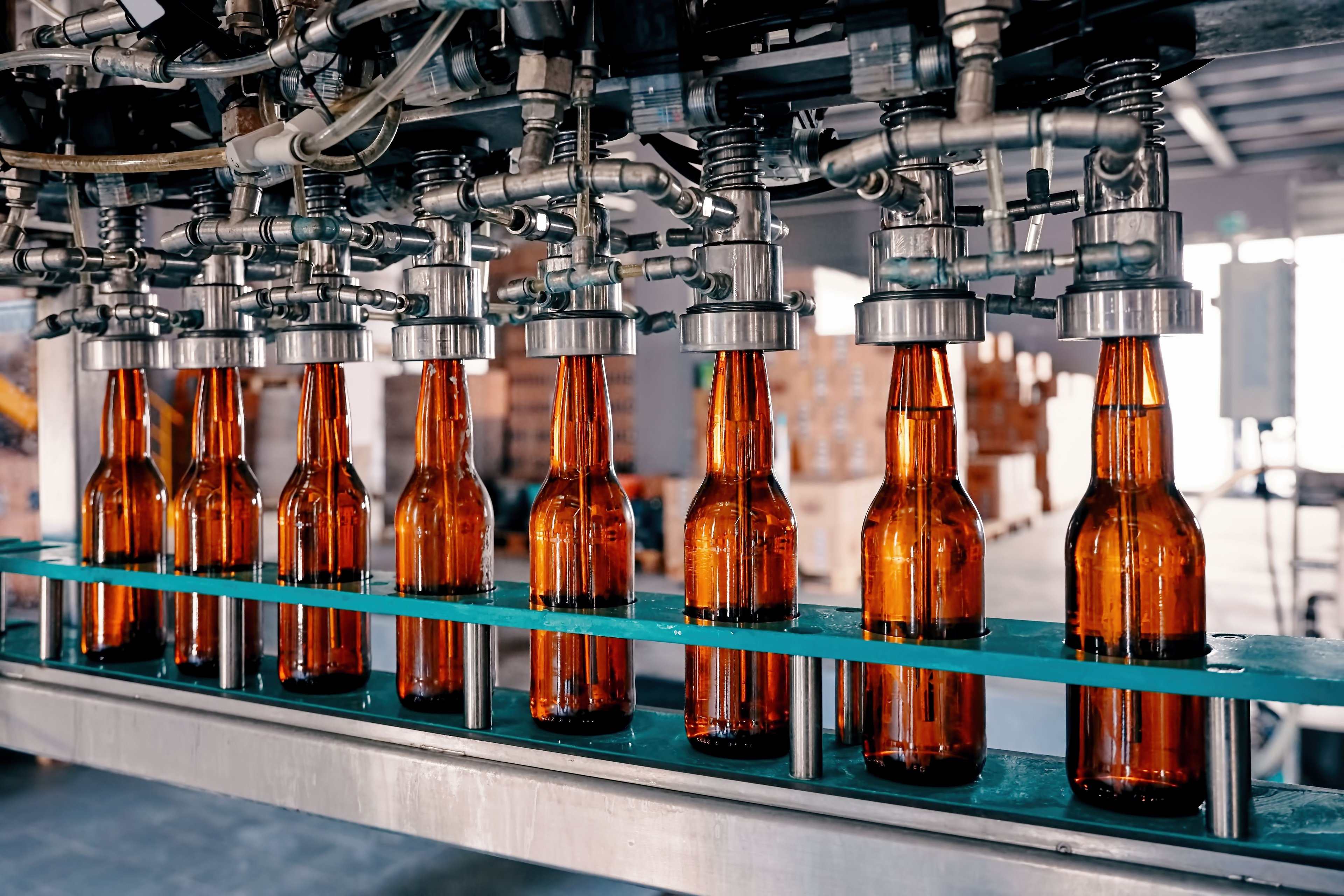He who hesitates is lost, and Boston Beer (SAM +1.62%) may have hesitated too long. The Samuel Adams brewer, which hunkered down in the face of the twin headwinds of more competition and changing consumer tastes, may have missed the chance to make a transformative acquisition.
Big brewers, plagued by declining sales, have been gobbling up craft brewers in search of growth -- a strategy the similarly suffering Boston Beer has been unwilling to pursue with any vigor. Now, those deep-pocketed buyers have bid up prices in the craft segment, leaving Boston Beer apparently priced out of the market.

Image source: Getty Images.
Thirsty for more
It's no secret Anheuser-Busch InBev (BUD +2.65%) has been on a spending spree. Over the past few years it has bought up a dozen craft brewers, a handful of distributors, and the biggest supplier to the homebrew market from where many craft brewers evolve. Today, it owns and operates 19 breweries, 21 distributorships, and 22 agricultural and packaging facilities.
The high-end portion of its portfolio is of critical importance to A-B's growth plans since sales of mass-brewed suds have gone nowhere for several years. The division also focuses on European beers, and includes brands such as Stella Artois, Shock Top, Goose Island, Blue Point, 10 Barrel, Elysian, and Golden Road, among others.
Similarly, Constellation Brands (STZ +3.94%) made a big bet on craft, paying $1 billion for Ballast Point Brewery, which it has successfully turned into the fastest-growing craft beer in the country.
Yet such acquisitions are taking a toll on the craft beer industry. According to the industry trade group Brewers Association, craft brewers sold $23.5 billion in 2016, representing nearly 22% of the $107 billion U.S. beer market. Yet the acquisitions have also subtracted some 1.2 million barrels from the equation because, once a brand is bought by a mass brewers, it's no longer considered "craft."
The industry has several criteria by which it defines a craft brewer:
- Small: annual production of 6 million barrels of beer or fewer.
- Independent: less than 25% of the craft brewery is owned or controlled by mass brewers.
- Traditional: derives its flavor from the use of traditional or innovative ingredients and their fermentation
Obviously, these one-time craft brewers are running afoul of the independence criterion. Similarly, while Craft Brew Alliance (BREW +0.00%) products such as Kona, Redhook, and Widmer Brothers are considered craft beers by the people who drink them, they aren't counted in the official numbers because Anheuser-Busch owns about a third of the company.

Image source: Getty Images.
Still brewing up growth
Fortunately for the craft beer industry, its overall health remains intact. There are over 5,000 breweries in operation in the U.S., more than at any time in history, and 1,000 more are coming online every year. While the loss of some of the breweries to the mega-producers took a lot of beer out of the official tallies, the remaining true independents still produced 1.4 million more barrels in 2016 than in 2015, helping to keep the industry growing at a 6% clip.
Yet as Boston Beer President Martin Roper recently recognized, all those acquisitions have served to inflate the market value of the craft brewers that remain. At an analyst conference last month, Roper noted that while there are still acquisition candidates out there, "they're overpriced." He also pointed out that although they have made a few bids over time, they always got outbid, and price paid is a key criteria for it to consider making a purchase.
Yet might the brewer have been better off spending a little more than it wanted to on a small craft brewer and introducing a potential growth label to its portfolio rather than spending money repurchasing its own stock?
Addicted to stock
Last year, Boston Beer spent more than $173 million on share buybacks at an average cost of around $170 a stub, though it did at times pay as much as $187 a share. The year before it spent $138 million buying back stock at an average cost of $224 a share. Today, Boston Beer's stock trades for around $145.
As Roper said, those brewers who are thinking of cashing out have dollar signs in their eyes now because of the billion dollars Constellation dropped on Ballast Point. And though the flurry of purchases Anheuser-Busch made in 2015 undoubtedly got the price points rising, Boston Beer could have been more proactive.
Now, prices are even more inflated, and they're probably beyond the point of reasonable. The brewer does say it's always interested in making an acquisition, and pointed to its previous purchases of Angel City, Cincinnati Brewery, Pennsylvania Brewery, and Coney Island as examplesl, but even it admits they were small additions to its portfolio.
When it had the financial wherewithal to make a transformative acquisition, it chose to do other things. Now, though it still has the resources to buy something, it may no longer make financial sense to do so. Regardless, Boston Beer needs something to juice its performance, and hopefully if craft brewer pricing comes back down from the stratosphere, it won't hesitate so long again.









